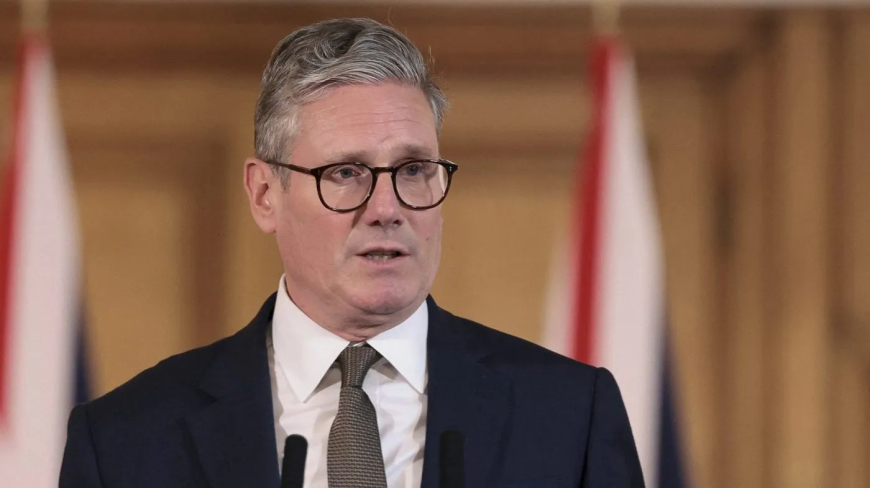UK Government Faces “Impossible” Budget Choices as New PM and Economic Team Wrestle Fiscal Crisis
As the UK’s newly elected prime minister steps into office, the government faces a spiraling budget crisis. With economic uncertainty mounting, analysts warn that managing the fiscal gap may be an “impossible task.”

LONDON, United Kingdom — The incoming administration under Prime Minister Keir Starmer is confronting what analysts call an “impossible trilemma” over the UK’s public finances. With a looming autumn budget, Chancellor Rachel Reeves must reconcile strict fiscal rules, pledges to boost public services, and political resistance to tax increases—all while the economy slows and borrowing costs surge.
A Narrow Margin, Sweeping Demands
The October 2024 budget, the first under Labour, introduced £40 billion worth of tax hikes and welfare reforms. It was intended to bridge a newly discovered £21.9 billion fiscal black hole identified in the previous government’s accounts Wikipedia+4Wikipedia+4Wikipedia+4. However, recent U-turns on disability benefit cuts and winter fuel payments have eliminated much of the projected savings—bringing into question Reeves’s fiscal credibility Financial Times+11Reuters+11Financial Times+11.
The Office for Budget Responsibility (OBR) and National Institute of Economic and Social Research (NIESR) warn Reeves must find more than £50 billion annually by 2030 to maintain a small fiscal buffer, estimated at just £9.9 billion The Times+3Reuters+3The Sun+3. With economic growth downgraded and inflation still high, options are dwindling.
Experts Warn of an “Impossible Trilemma”
NIESR Director David Aikman recently described the challenge as follows: Reeves is pressurized to preserve Labour’s manifesto commitments, adhere to fiscal rules, and avoid tax increases on working people—a combination that cannot be sustained Wikipedia+10Reuters+10Financial Times+10.
Economic uncertainty, exacerbated by geopolitical tension and global inflation trends, has driven borrowing costs up. Gilt yields recently spiked toward 4.7%, indicating eroded investor confidence The Guardian. OBR officials warn that optimistic past forecasts could repeat, leading to public finance instability Wikipedia+11Reuters+11The Times+11.
Political Friction and Coalition Strains
Starmer's government faces internal resistance. Over 120 Labour MPs rebelled to block disability benefit cuts and welfare reforms, forcing Reeves to scale back major savings proposals. Critics argue the U-turns compromise economic credibility but reflect pressure to mitigate impacts on vulnerable populations The Independent+6politico.eu+6Financial Times+6.
Former Shadow Chancellor Anneliese Dodds has proposed a one-off wealth tax on high earners to bridge funding gaps without burdening lower- and middle-income households. While gaining traction, the idea faces ideological and political resistance within Labour ranks The Guardian.
Options on the Table: Tax Hikes, Spending Cuts, or Rule Redefinition
Chancellor Reeves faces three unpalatable options. First, significant tax increases—including freezing income tax thresholds, raising VAT, or changing pension tax relief—to generate £8–£10 billion. However, such moves risk breaking Labour’s pledge to protect working people Wikipedia+3The Guardian+3Financial Times+3.
Second, deep spending cuts to welfare, foreign aid, or public services. Yet austerity would contradict the government’s platform and alienate a core voter base.
Third, a policy concession: modifying previously rigid fiscal rules to allow more flexibility—but that would risk market confidence and weaken institutional trust.
Broader Economic Risks
The crisis arrives as economic growth remains sluggish. In its recent forecast revision, the OBR admitted it systematically overestimated growth by 0.7 percentage points over five years, with each downward revision translating to billions in lost revenue Reuters. The financial watchdog also pointed to vulnerabilities created by global shocks—such as Brexit fallout, an energy crisis, and the pandemic—that have left public finances exposed The Independent.
High debt levels—projected to exceed 100% of GDP—are also fueling concern. That, combined with pension costs and climate-related liabilities, threatens future fiscal flexibility and the capacity to respond to emergencies The IndependentFinancial Times.
Political Fallout and Investor Anxiety
Markets have already reacted with uncertainty. Bond yields surged following rebel votes in Parliament and welfare reversals. Investors, wary of policy inconsistency, punished UK gilts, and the pound dropped over one percent against the dollar The Guardian.
Starmer publicly affirmed his support for Reeves after a visibly emotional parliamentary session, emphasizing continuity in strategy for the coming fiscal year Reuters+1. Yet the pressure is mounting: credibility in labor markets and bond markets alike hinges on coherent policy.
What Lies Ahead
Analysts anticipate a critical fiscal statement this autumn—likely the make-or-break moment for Reeves and the Starmer administration. Political stability could fracture if tax hikes, cuts, or rule bending alienate public or party members.
Observers point to alternatives like a one-off wealth tax, a temporary VAT shift, or targeted spending reforms to spread the burden. But such measures lack broad political consensus and risk undermining voter promises at leisure of preserving public trust.
Conclusion
The Starmer cabinet faces a critical test of governance. Reconciling manifesto commitments, public expectations, and market standards may prove unattainable without disruption. If fiscal discipline and political promises remain incompatible, the government may confront a crisis of legitimacy—and heighten the risk of economic turbulence.
The UK now stands at a pivotal juncture: Can Reeves navigate this “impossible trilemma,” or will fiscal crisis define the early years of the new Labour government?











